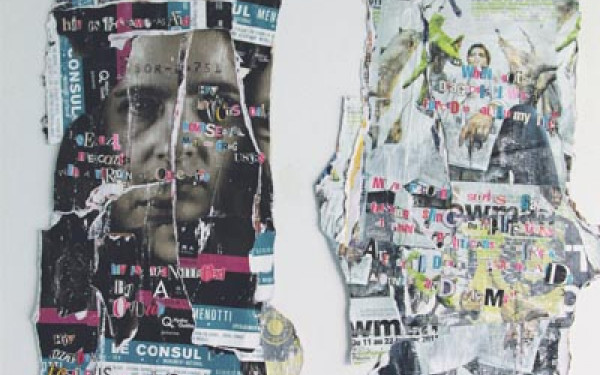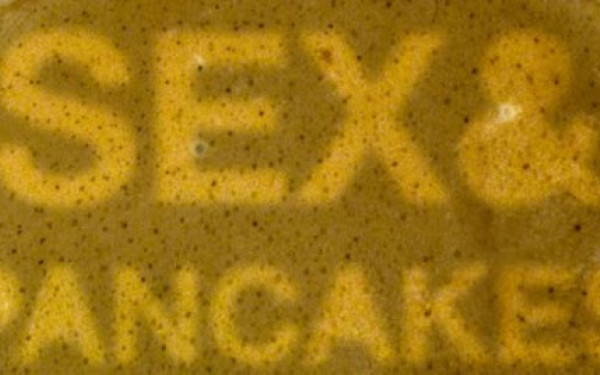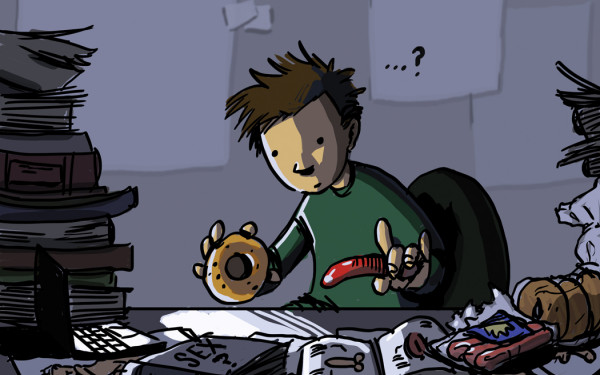Ending the Stigma on Queer Black People and AIDS
American Professor Marlon M. Bailey Gives a Reminder to Humanize
On Thursday evening, all eyes were on Marlon M. Bailey as he put on a performance narrating the lives of five queer Black people suffering from HIV/AIDS based off his previous research.
The performance was held at the SSMU Ballroom at McGill University. Entitled Black Queer Sex, Love, and Life in the Age of AIDS, it was part of the Concordia University Community Lecture Series on HIV/AIDS.
“This is a paper-slash-performance that I am working on that examines and highlights the lives and experiences of queer Black people, mostly men, in the age of AIDS from their perspective,” said Bailey.
By exploring the narratives of characters Thatcher, Noir, Raheim, De Angela, and Vibe Issues, Bailey addresses the complexities that this community faced in the pandemic by showing the more human side of the victims.
Marlon M. Bailey, Associate Professor in the School of Social Transformation at Arizona State University, has a PhD in African American Studies with an emphasis in Gender, Women, and Sexuality from the University of California Berkeley. He is also on the board of directors of a Black gay HIV/AIDS prevention agency, Brothers United, based in Indianapolis.
“Throughout the narratives we see ways in which Black queer people suffer through intersectional forms of marginalization, exclusion, and overall social disqualification,” said Bailey in his performance.
“We also see the ways in which they internalize and perpetuate aspects of the similar forms of violence to which they are subjected such as misogyny, femphobia, transphobia, and homophobia all of which are complicit with, if not constitutive of racism and white supremacy,” Bailey said, adding that this is why intersectional analyses and approaches to HIV prevention and knowledge reduction are essential.
The Concordia University Community Lecture Series on HIV/AIDS aims to spread awareness of the the social, scientific, and cultural aspects of the HIV/AIDS pandemic.
These lectures allow for discourse on the various perspectives and realities of the pandemic and challenges the failure to use interdisciplinary approaches to HIV-related information available.
The Concordia HIV/AIDS project also creates a safe space for students and community members who live with HIV/AIDS.
“While the context of the epidemic has changed greatly over the past twenty-three years,” said Kaity Zozula, coordinator of the lecture series, “the need for open and critical conversations about the response, needs, and experiences of the epidemic has not.”
Bailey said the main point of the performance is to take away the way people place responsibility on those who have sexual transmitted infections or diseases, like HIV.
“We need to do some work around the ways in which we are anti-sex and the stigma around sex, particularly gay sex, informs the way we think about HIV,” he said.
“It has less to do with individual sexual behaviour and more to do with social structures and the context in which sexual behaviour happens,” he added. “What happens with a lot of LGBT people of colour, the public health system treats the disease and not the person.”
Queer Concordia, in coordination with the Concordia Undergraduate Psychology Association, Health Services, and the Concordia Student Union, will be organizing another rapid-HIV testing at their event “Sexpress Yourself.” It will take place on Valentine’s Day at CUPA Concordia. There, Queer Concordia will also hand out safer-sex kits that include condoms, lube, and latex gloves.
Although many organizations are in place to help queer people of colour, Bailey believes that there is a lot of work to be done in the way that we contribute to the stigmatization of someone who gets an STI or someone who is HIV-positive.
“It’s a disease like any other disease,” he said, “there’s no stigma around cancer.”

_900_600_90.jpg)





_600_375_90_s_c1.jpg)